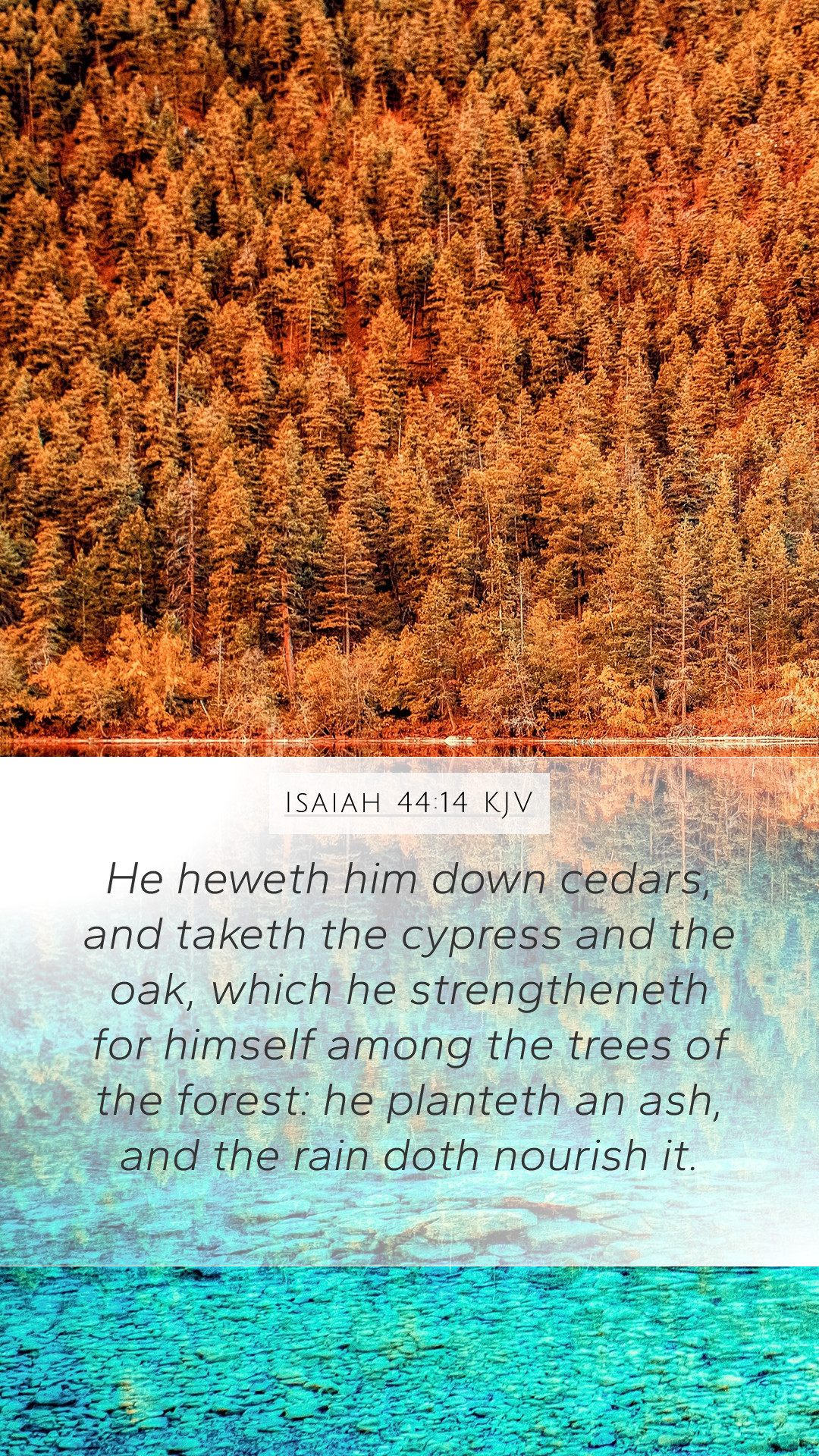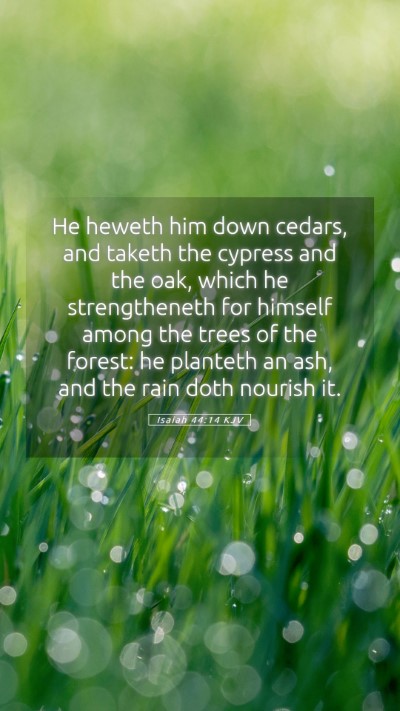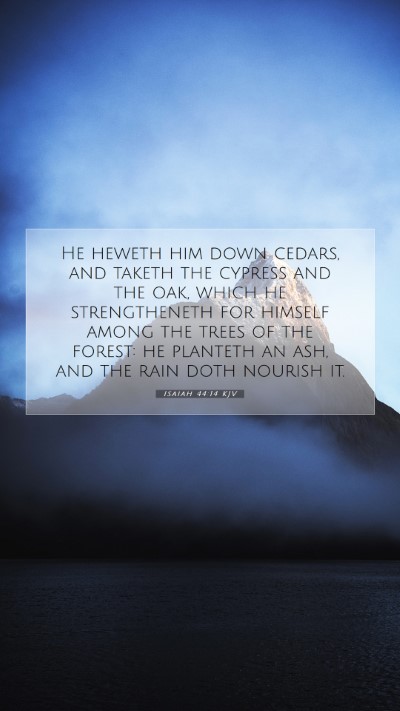Understanding Isaiah 44:14
Isaiah 44:14 states, "He heweth down cedars, and taketh the cypress and the oak, which he strengtheneth for himself among the trees of the forest: he planteth an ash, and the rain doth nourish it." This verse offers significant theological insights into the nature of idolatry and the folly of relying on created things instead of the Creator.
Bible Verse Meaning and Interpretation
This verse can be understood better through the lens of the commentaries from renowned theologians:
-
Matthew Henry:
Henry emphasizes the absurdity of humanity creating idols from materials that God created. He points out that the craftsman selects trees for his work, illustrating the human tendency to trust in crafted things while neglecting their dependence on the divine Creator. The act of hewing down trees symbolizes human effort to create false gods, contrasting God's sovereignty over creation.
-
Albert Barnes:
Barnes focuses on the imagery of the craftsman, who carefully selects trees for strength and durability. He notes that this reflects the misplaced trust of people in their own creations rather than accepting God's provision. The rain that nurtures the ash represents God's continued provision, highlighting that only God can truly sustain life.
-
Adam Clarke:
Clarke elaborates on the significance of the materials listed, indicating that each type of wood signifies something unique about the creations of man. He also warns against the futility of idol worship, contrasting it with the living God who alone should be the source of trust and worship. Clarke points out the stark difference between what is temporary and ephemeral versus what is eternal and divine.
Scripture Analysis
The essence of Isaiah 44:14 lies in its role as a commentary on idolatry and a call to return to the rightful worship of God. It raises questions about the priorities of life and the nature of dependence:
- Idolatry: The verse critiques the act of creating idols, emphasizing the irony of humans making gods from wood, which ultimately could not save or sustain them.
- Dependence on God: The reference to rain nourishing the trees serves as a reminder of God's provision for creation, illustrating that true sustenance comes from Him alone.
- The folly of human wisdom: It displays the futility of man’s attempts to outsmart God by relying on created things rather than the Creator.
Application of Isaiah 44:14 to Daily Life
In applying this verse to our lives, we can consider several action points:
- Evaluate Priorities: Reflect on what we are investing our time and resources into and whether these things draw us closer to God or distract us.
- Trust in Divine Provision: Recognize daily the ways God sustains us and consider that true security isn't found in our created resources but in Him.
- Reject Idolatry: Identify and discard any modern forms of idolatry, which may include materialism, success, or unsound relationships that take precedence over our relationship with God.
Cross References
Isaiah 44:14 can be related to the following Bible verses for deeper understanding:
- Isaiah 40:18: "To whom then will you liken God? Or what likeness will you compare to Him?"
- Psalms 115:4-8: "Their idols are silver and gold, the work of human hands...those who make them become like them, so do all who trust in them."
- Jeremiah 10:3-5: "For the customs of the peoples are vanity...their idols are like scarecrows in a cucumber field, and they cannot speak."
Conclusion
Isaiah 44:14 serves as a profound reminder within Bible verse commentary that we are called to seek understanding in Scripture and apply it thoughtfully. As we discuss this verse in bible study groups or pursue online Bible study, we learn to interpret the deeper meanings, applying them to our daily lives for growth in faith.
Understanding such verses not only enriches our spiritual journey but also equips us with the insights necessary to guide others in their own biblical exegesis.


